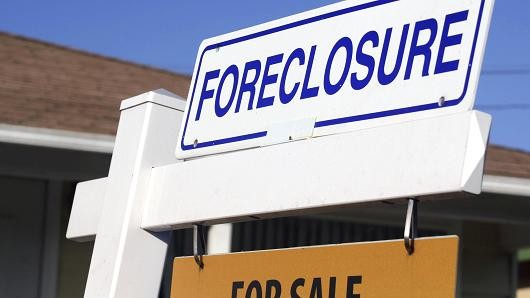What Is A Short Sale Short Sales Help The Best Short Sales Resource
Post on: 12 Июль, 2015 No Comment

There are a large number of homeowners who have been led to think that the perfect way to avoid foreclosure and walk free from their home loan without owing a dime is simply by using a real estate short sale. Much of this type of thinking is gaining traction simply because of a lot of confusion that has occurred when it comes to strategies used in real estate. This may be true in part; however the real estate short sales process is not as simple as some people may think.
Short sales are an option some homeowners use when the bank, credit union or other types of lenders they have borrowed from provides them with the option of selling their home to a third party (generally the lender) at a price that is much lower than what they actually still owe on the note of their home loan. The short sales process is one that is often used by homeowners who are trying to avoid getting caught up in a foreclosure. Thus, receiving approval from the lender to short sale allows them the opportunity to sell their property at a significantly lower rate. It is also important to compare short sales and foreclosures to ensure you are making the right decision.
To most people, it sounds rather strange for any type of lender to be willing to accept a lower amount from homeowners than what they truly owe on their home. There is more than just one reason why a bank chooses to accept short sales. The key reason is, simply put, that a short sale costs them much less than what a home foreclosure would. The expense banks already have to consider from foreclosures is astronomical. They will also be able to supply you with information in regards to benefits received from short sales. However, when they provide homeowners with the option of a short sale. they are then able to recover at least a partial amount of what they would otherwise completely end up losing. When a bank has several home loans that are non-performing, the Federal Reserve will often lower the amounts or even suspend funds they provide to these lenders.
Different Options Available
There are also two different options in regards to short sales that a credit union, bank or other lender might offer. Before attempting the short sales process, it is vital to find out which one it is that your lender offers to homeowners. These options are as follows:
1. Deficiency Judgment – In using this type of short sale option, the homeowner will be held liable to pay whatever difference there may be in the short sale and the balance of their mortgage loan. It is important to note that short sales information of a deficiency judgment will stay on a homeowner’s credit report until the balance is paid. Short sales of this nature frequently take numerous years to pay off, as the balance generally equals thousands of dollars.
2. Payment in Full w/out Pursuit of Deficiency Judgment – This particular type of short sales option is the most popular choice among most homeowners. They do not have to worry about moneys that are required above the amount their property is sold. This means they are free and clear of obligations after the process is complete of short selling their property.
If the process of short sales is something you must consider it is necessary to contact the bank as soon as possible to gain short sale information on the type of options that are available to you, along with information in regards to short sales vs. foreclosure .
Common Short Sales Process Used by Most Lenders
Although the actual process that is commonly used in short sales may vary from one lending firm to the next, it is generally pretty much the same across the board. When most homeowners compare short sales vs. foreclosure it generally is agreed that short sales is the better option. The common short sales process is as follows:
1. The first step is to consult with the lending institution holding your mortgage so you can discuss the options available to you using short sales. This is when homeowners will gain short sale information from the lender in regards to the specific process they will need to follow to complete the sale of their property.
2. This step involves homeowners sending a letter to the escrow agency and the property buyer that will list their detailed short sale information and authorizing the release of this information.
3. The settlement statement holding the short sale information will be reviewed by the lender. The statement includes information on the short sale that includes the price the property will be sold, an itemized list of expenses involved, balances on loans that remain and any other fees that may be applied to the closing of the entire process of short sales.
4. Short selling a property requires that homeowners write a ‘letter of hardship’. This should include in-depth details in regards to financial difficulties the homeowner is facing. Other items the lender will also need to see to validate the necessity for short sales would include information of investment accounts, checking and savings accounts, pay stubs from the employer and any other financial records that would indicate validity for a short sale.
5. The overall condition the property is in, as well as the prices of homes of comparison that will determine a fair market value will be obtained by the lender through information the broker supplies.
6. All aspects of the short sales agreement will then be scrutinized by the mortgage lender. This is to determine that the amounts and conditions are reasonable and to ensure the commission on the real estate is acceptable.
Homeowners Who May Qualify for Short Sales

As with any other type of agreement that is made with a lending institution, there are stipulations on the homeowners that qualify for short sales vs. foreclosures. Below you will find criteria that must be met by a homeowner who is considering short selling, before they can proceed with the short sales process.
• If changes in a homeowners financial situation has occurred, resulting in bringing home less money than what they were when the initial mortgage loan was made
• The homeowners does not have any funds in a savings account
• Obligations on the mortgage are still current but the homeowner is able to show ample proof that expected payments for the future cannot be made
• The market value of the property has dropped
• The homeowner’s realtor can supply a Comparative Market Analysis (CMA), which helps in the process of determining the value of the property
• Existing liabilities cannot be taken care of through a debt service
• The mortgage payment is one month or more delinquent
While short sales is a great option for many homeowners that have hit hard times, it is not the best option for everyone and it should be researched in detail before making this important decision.














